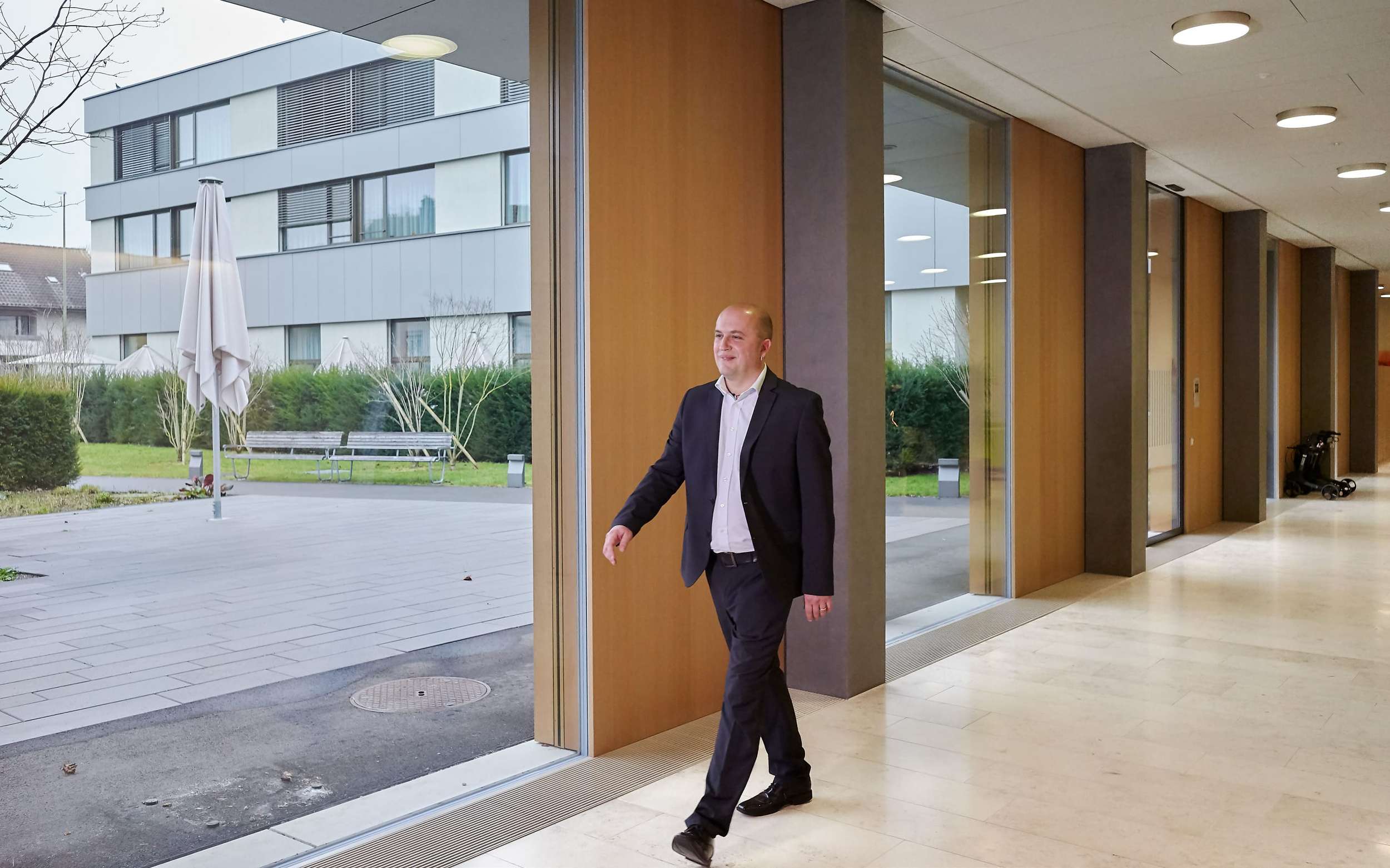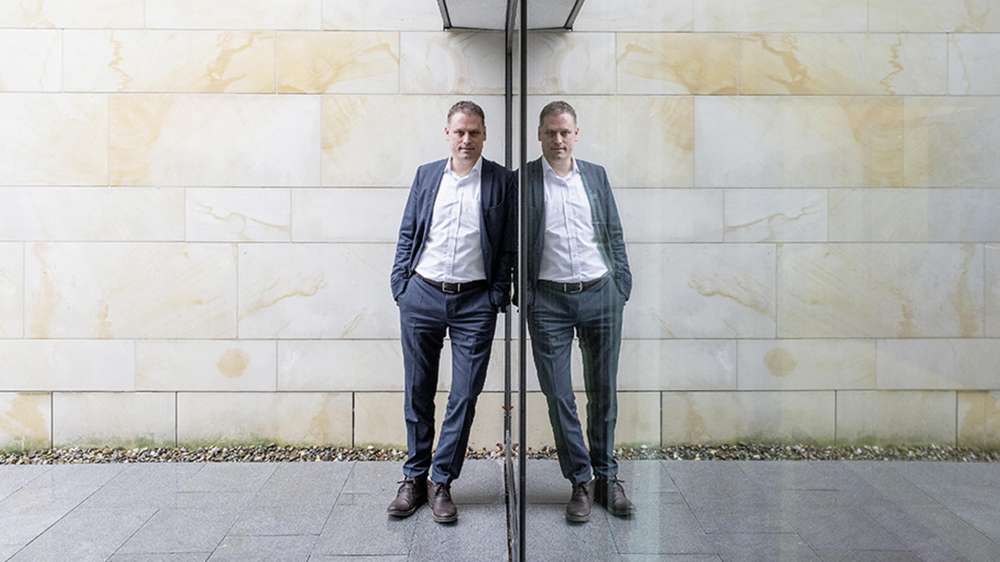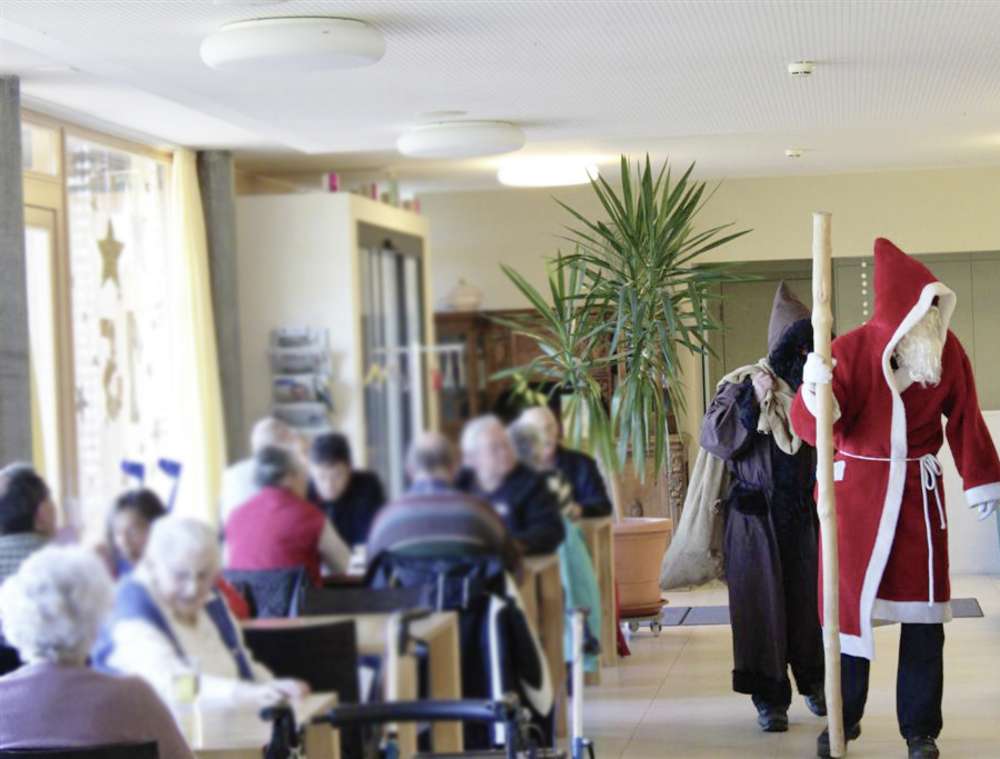Story Detail
Assisted living moves centre stage
The expectations now placed on assisted living are quite different. In our interview with Daniel Widmer, who manages the Tertianum Bubenholz residential care centre in Opfikon in the canton of Zurich, he explained what solutions and offerings are best suited to meet today's residents' needs and the direction of travel on which the assisted living sector is now embarking. He is engaged in implementing one of the most modern concepts for assisted living. In so doing, he is not only moving the Tertianum group decisively into the future, but perhaps the entire assisted-living sector as well.
Mr. Widmer, how is the assisted-living sector evolving?
In a word, the focus is moving back to the individual residents themselves.
So the are no major technological developments, or indeed revolutions, around the corner?
Absolutely not. Take a good look around our centre here. At Tertianum Bubenholz in Opfikon, we have a total of 120 residents living in 59 apartments and 43 care rooms. The key point is that these people are living here. This is their home. We are not a hospital, nor are we a hotel. In other words, we are not a place where people stay for only limited periods of time and are obliged to accept compromises in order to do so. Our residents come to us to live here. And that obviously means that they bring their lives with them. Their habits, their preferences, their environment ... Just as they would when they move into an ordinary apartment in a multi-dwelling development.
Are you saying that residents at this Tertianum residential and care centre do not live as they would do elsewhere?
Oh yes they most certainly do. As much as possible. Ideally, when a new resident moves in here, he or she takes a comfortable apartment. Our rents for a welcoming place to call home begin at 1 750 francs per month. So the terms we offer are entirely in line with market conditions. The difference is that they include some major advantages.
And what are they?
Our building is right in the centre of the village. So the location is ideal in that it allows our residents to live as they have always done. They can do their shopping, cook for themselves, meet their friends and receive visitors. The difference is that this building was designed around the needs of older residents right from the start, with open access to all areas, ergonomically designed fixtures and fittings, and a washing machine and tumble drier in each apartment, rather than down in the cellar. That enables our residents to maintain an independent way of life for a long time. Then there is the safety aspect. Should our help be needed, someone will be available to assist right away. Seven days a week, twenty four hours a day.
Don't the traditional home-care arrangements for older people provided by the state provide that service as well?
Not really. We are more flexible. Under the traditional arrangements, if someone needs help with their housework or in caring for their partner, that assistance may not always be available precisely between, say, 3.30 and 5.00 pm. And what if I have a fall at 10 pm? Or I am taken ill at 9.20 in the morning? The most important difference is that our system allows our residents a great degree of self determination. When a new resident moves in here, we guarantee that they can remain with us for the rest of their lives, should they so wish. Ideally, their residence with us will begin with many years of independent living in a comfortable apartment. Later on, should their need for our services grow, they can gradually draw on these up to and including full nursing care. We also have an acute care facility. That enables couples to continue to live together in the same place, even when one of them is unwell. That is a feature which most of our residents greatly appreciate.
You were saying that the focus is moving towards the individual.
Absolutely. Our key values are self determination, independence, dignity and respect. They are central to all the decisions we make here at Tertianum.
Doesn't that apply nowadays to all care homes?
Don't get me wrong. I am not trying to suggest that anyone working in the care sector lacks respect for their residents. But the systems that have existed hitherto do not treat their residents with as much respect as they could. They tend to place constraints on them and limit their range of options.
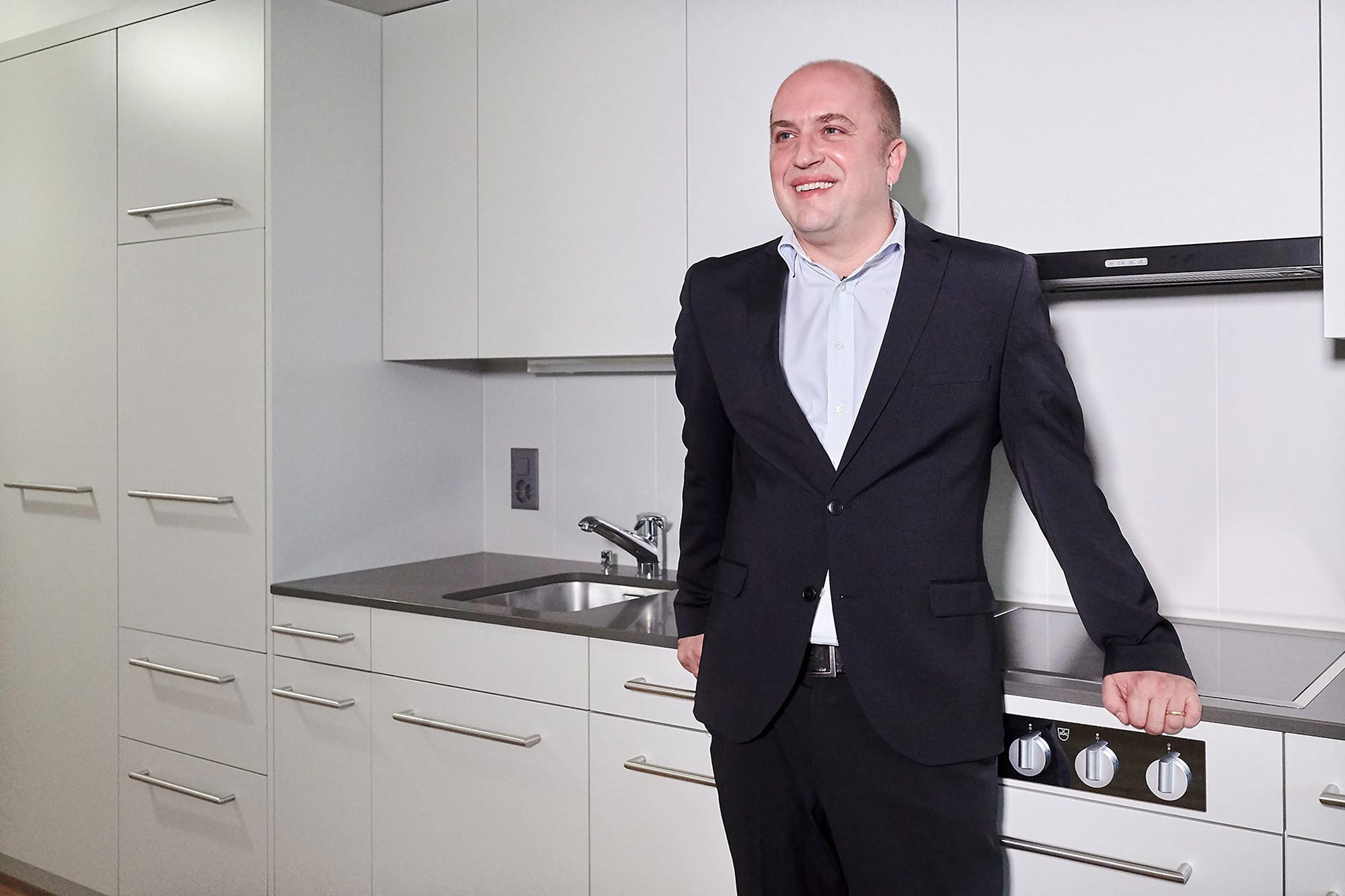
So it's all about choice?
Self determination is a key component of human dignity and thus an important factor in quality of life. Many older people today are unable to determine the course of their lives as much as they would like. If they encounter health problems, often their only options are to remain in their homes or to move to a care home. Since the latter course of action does not appeal to many of them, they opt to remain at home and receive care there. If something goes seriously wrong and they have to spend time in the acute ward of a hospital, they are then told «Now you are going to a care home.» Once they get there, they are subjected to a more or less rigid daily routine. For example, they are woken at 7 every morning, regardless of whether they actually want to get up at 4 a.m. or at 10 a.m. That is not how older people want to live their lives.
Tertianum has been offering individualised services for quite some time now. What is new about Bubenholz?
In the past, Tertianum's principal focus was on high-cost residences at the top end of the market. There would, for example, be a pianist on Tuesday afternoons and residents would even dress formally for lunch. Here in Opfikon we are operating a public private partnership with the municipality. Not only do we have to meet clearly defined standards of care, but we also have to operate very efficiently and calculate our costs carefully. Because we are part of the Tertianum Group, we are able to offer our services at lower prices than the local municipality would be able to achieve if they provided them themselves. Thanks to the size of our operation, we are able to achieve significant economies of scale. From cleaning, to catering, to maintenance we benefit from the fact that we operate more than 76 residential care centres, rather than just one or two.
But service does not come cheap …
Obviously, a lot of things have their price. A lakeside location, attractive, high-quality fixtures and fittings, and so on. But that doesn't necessarily apply to the true quality of life. That is what prompted Tertianum to take a different approach. Instead of downgrading the existing offering, we effectively created a new design, starting from scratch. This is the first building where we have put this concept into effect. Our key priorities are self determination and a systematic focus on our individual residents' needs. They have the option of simply renting an apartment and only using our services when they really need and want them. Self determination and respect are also central to the training we provide to our staff, right from the start. They are practised within the envelope of an overall cost level which everyone is able to meet. Dignity must never be a function of wealth.
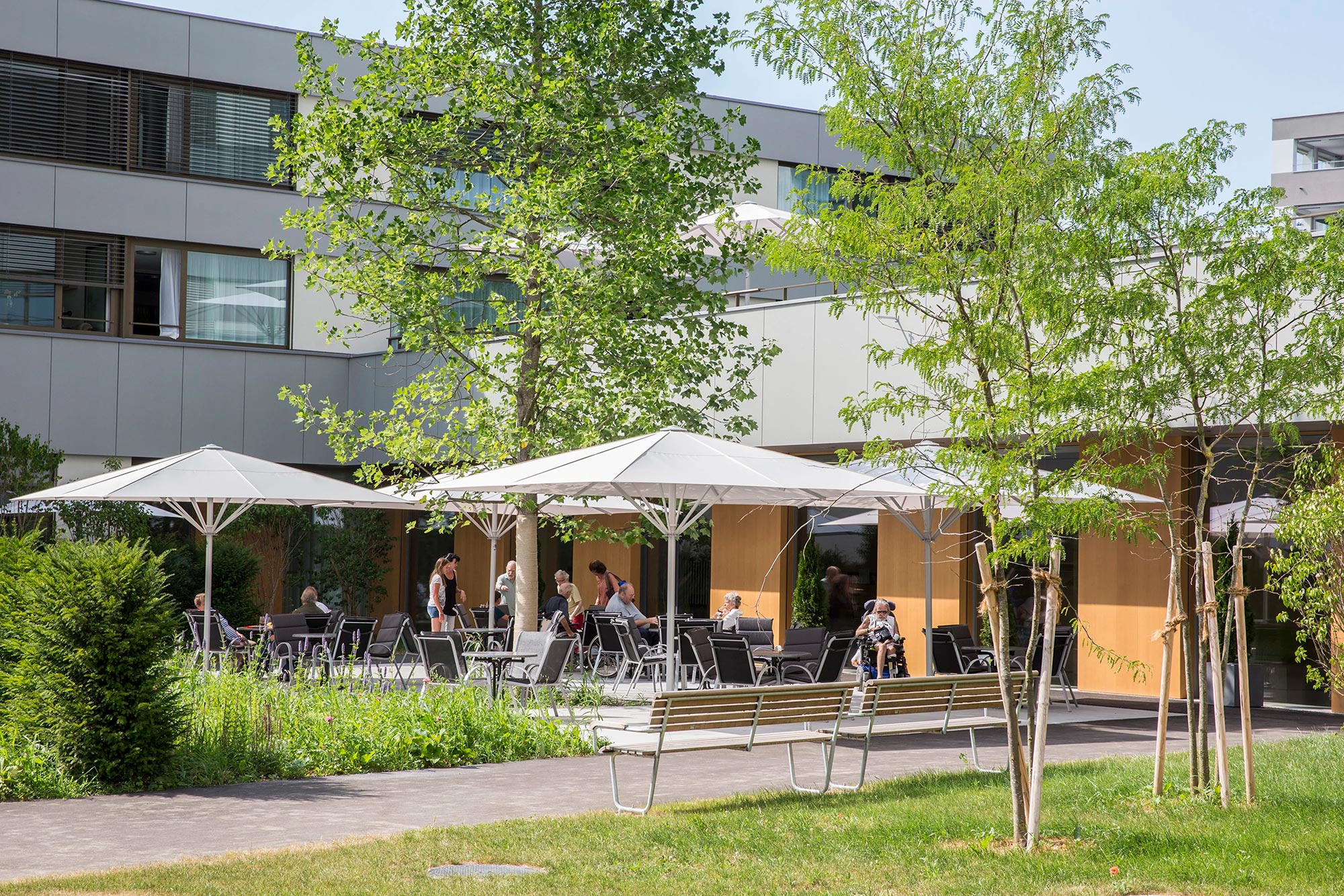
How are the insights you gain here used within the Tertianum Group?
A major effort is being made to transfer our know how in all directions. On the one hand, the insights we have gained here are being put to use in new Tertianum projects and in the continuous improvement of existing offerings, including our own, because we have also not yet achieved all our objectives. We also transfer know how outside the Group and often receive visits from assisted-living professionals from far and near alike.
How do you see the future? What are your next challenges?
At present, we are already meeting the increasing demand for individuality and self determination. On that score, we are five or six years ahead of the sector as a whole. But we are also thinking about other trends which will affect assisted living in the future. One example is assisted living offerings for people from other cultural backgrounds who do not wish to return to their country of origin when they retire, as was usually the case until quite recently. Of course, there are overarching templates such as care plans and statutory regulations but these are unlikely to help us all that much. We need concepts for people who are now in their prime and will be living with us ten or twenty years from now. For example, ten years ago, who would have thought that we would have to install a WLAN network throughout the building because a large number of our residents now want to manage their financial affairs online?
